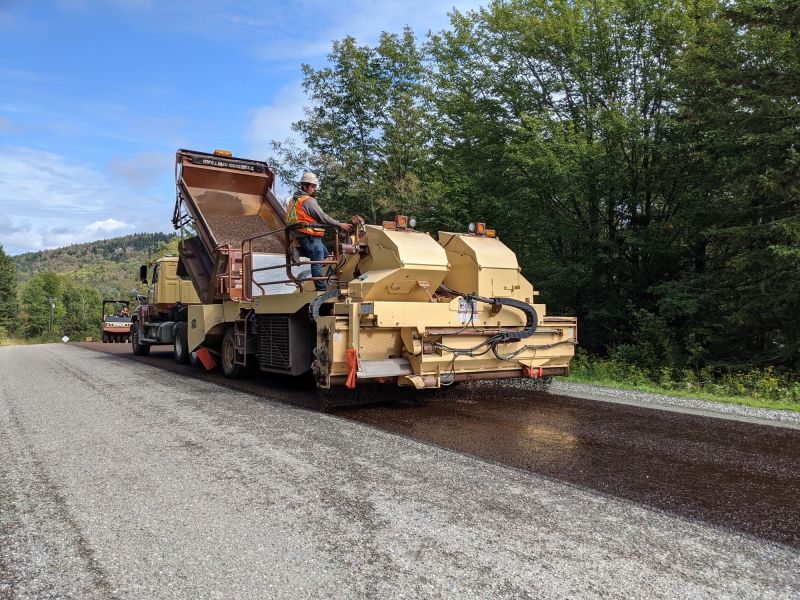Leading Slurry Sealing Products For Durable Asphalt Coatings
Explore products designed to deliver durable, seamless asphalt coatings that resist wear and enhance surface longevity.
 Slurry sealing is a vital process in maintaining and restoring asphalt pavements. It involves applying a mixture of asphalt emulsion, fine aggregates, and other additives to create a protective layer that helps extend the lifespan of roads and driveways. This technique is valued for its ability to fill surface imperfections, seal small cracks, and provide a uniform, durable surface finish. Properly selected slurry sealing products can improve the appearance of asphalt surfaces while enhancing their resistance to water infiltration and surface wear.
Slurry sealing is a vital process in maintaining and restoring asphalt pavements. It involves applying a mixture of asphalt emulsion, fine aggregates, and other additives to create a protective layer that helps extend the lifespan of roads and driveways. This technique is valued for its ability to fill surface imperfections, seal small cracks, and provide a uniform, durable surface finish. Properly selected slurry sealing products can improve the appearance of asphalt surfaces while enhancing their resistance to water infiltration and surface wear.
Top Overall Option
High-Performance Slurry Seal Mix
A versatile slurry seal mixture designed for a wide range of asphalt surfaces, offering ease of application and reliable adhesion. It provides a smooth, protective coating that helps seal small cracks and surface imperfections, contributing to the longevity of pavements. Suitable for both professional and DIY use, this product emphasizes consistent mixing and application for optimal results.
Types of Products For Slurry Sealing For Asphalts
Acrylic-Based Slurry Seal
Formulated with acrylic emulsions for enhanced adhesion and flexibility, suitable for various climates and traffic conditions.
Polymer-Modified Slurry Seal
Contains polymers to improve durability, resistance to cracking, and surface wear, ideal for high-traffic areas.
Fast-Drying Slurry Mix
Designed for quick curing times, allowing for faster project completion and minimal downtime.
High-Friction Slurry Seal
Incorporates textured aggregates to enhance surface grip, especially useful for steep or hazardous areas.
Eco-Friendly Slurry Seal
Formulated with environmentally safe materials, suitable for sensitive environments or urban settings.
Crack-Resistant Slurry Coating
Designed to accommodate surface movement and prevent crack propagation over time.
Heavy Traffic Slurry Mix
Engineered for roads and parking lots with high vehicle loads, offering enhanced wear resistance.
Light Duty Slurry Coat
Ideal for residential driveways and low-traffic surfaces, providing a protective and aesthetic finish.
Waterproof Slurry Seal
Offers superior water resistance to protect underlying pavement from moisture damage.
Color-Tinted Slurry Seal
Includes color additives for aesthetic enhancement and marking purposes.
Sand-Added Slurry Mix
Contains added sands for increased texture and skid resistance.
Polymer-Enhanced Slurry Coating
Provides additional flexibility and adhesion through polymer integration.
Quick-Set Slurry Material
Formulated for rapid setting times to accelerate project timelines.
Flexible Slurry Seal
Designed to accommodate pavement expansion and contraction without cracking.
Premium Asphalt Emulsion
A high-quality emulsion base for mixing with fine aggregates for slurry sealing.
Popular Choices
Often chosen for its enhanced durability and resistance to surface wear, suitable for various environments.
Widely used for its adhesion properties and flexibility, making it a common choice for many projects.
Favored for quick application and curing, minimizing project downtime.
Popular for surfaces requiring enhanced grip, especially in areas prone to slipping.
Chosen for its ability to handle surface movements and prevent crack formation.
Valued for its moisture protection capabilities in areas with high rainfall or standing water.
Used for aesthetic purposes or marking, adding visual appeal to surfaces.
Preferred for pavements with high vehicle loads due to its robustness.
Ideal for residential or low-traffic areas, offering a protective surface.
Popular for its textured surface and skid resistance features.
Chosen for additional flexibility and adhesion in demanding conditions.
Allows for faster project completion with rapid curing times.
Choosing the right products for slurry sealing depends on various factors including the condition of the existing pavement, traffic load, and environmental conditions. The application process typically requires a well-prepared surface and precise mixing to ensure even coverage and adhesion. Different formulations are available to cater to specific needs, such as quick-drying mixtures or those designed for high-traffic areas. Safety and ease of application are also important considerations when selecting slurry sealing products.
Professionals and DIY enthusiasts alike seek reliable, high-quality slurry sealing materials to achieve optimal results. The versatility of these products allows for their use in a variety of settings, from residential driveways to large-scale roadway projects. Proper product selection can help ensure a smooth application process, long-lasting results, and minimal maintenance over time. Whether for preventative maintenance or surface restoration, understanding the options available is key to making informed choices.
Investing in the right slurry sealing products can contribute significantly to the durability and appearance of asphalt surfaces. With numerous formulations and application methods available, it is essential to consider the specific requirements of each project. From surface preparation to final curing, selecting appropriate materials is a crucial step toward achieving a successful sealing job that protects and prolongs the life of asphalt pavements.
Key Buying Considerations
- Compatibility with existing asphalt conditions and surface age
- Application method and ease of mixing or handling
- Curing time and drying requirements for project scheduling
- Traffic load and expected wear on the sealed surface
- Environmental conditions such as temperature and humidity during application
- Desired surface texture and slip resistance features
- Water resistance and moisture protection capabilities
- Flexibility and crack-bridging properties for aging or moving pavements
- Color options for aesthetic or marking purposes
- Inclusion of additives like sands or polymers for enhanced performance
- Application equipment compatibility and requirements
- Long-term durability and resistance to surface wear
- Cost considerations and material coverage per unit
- Availability of technical support or instructions for application
- Compliance with safety and material handling standards
